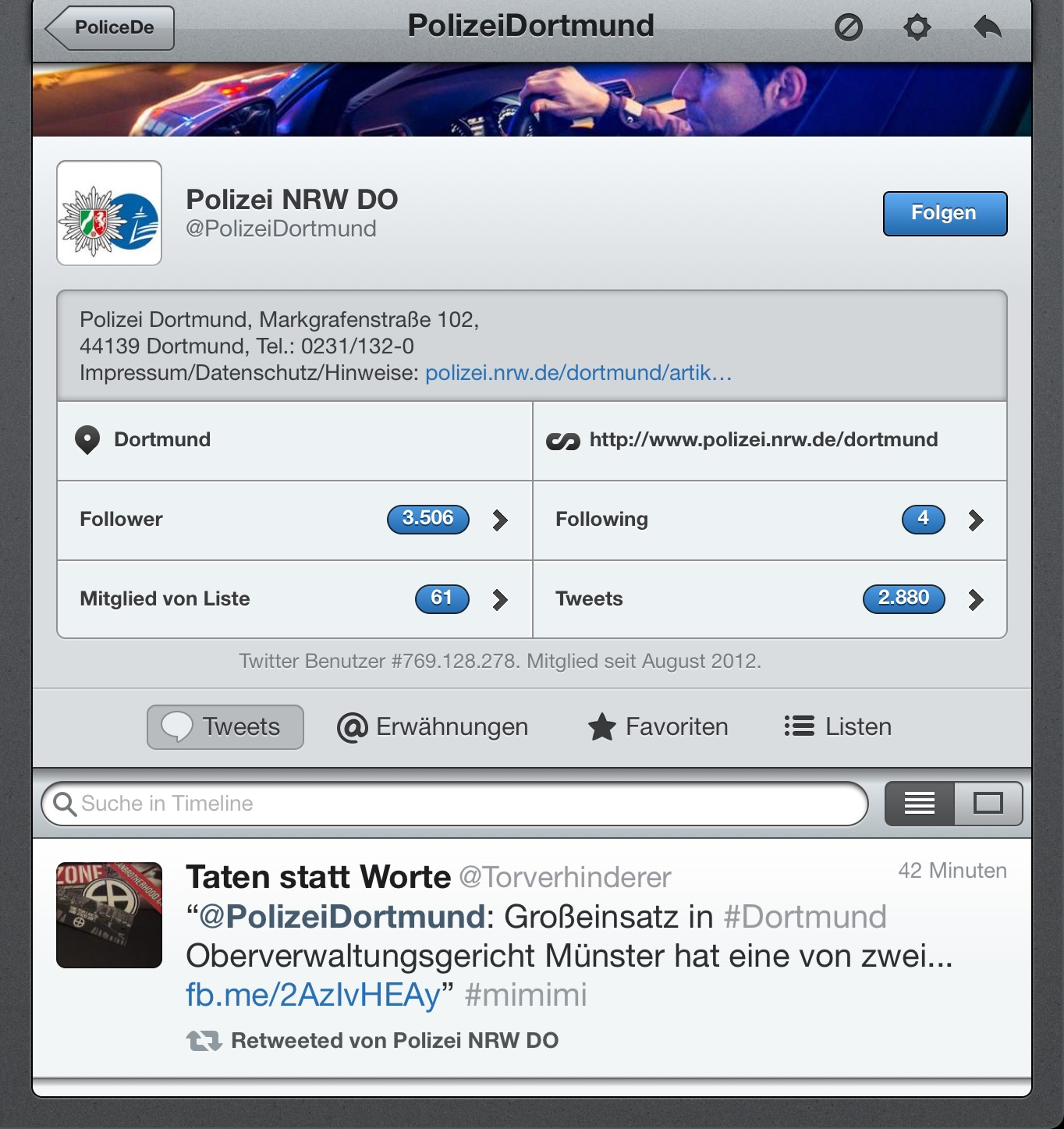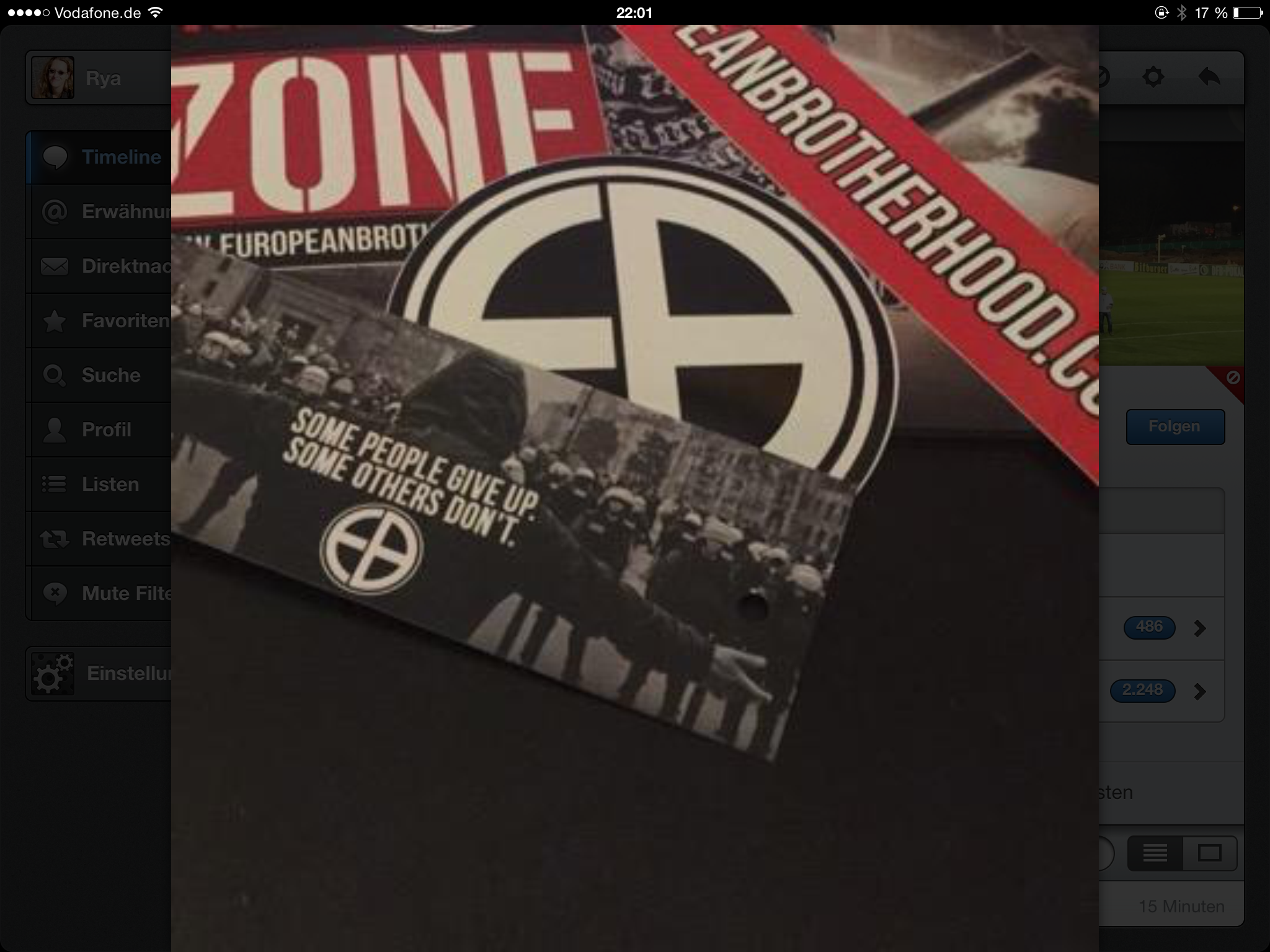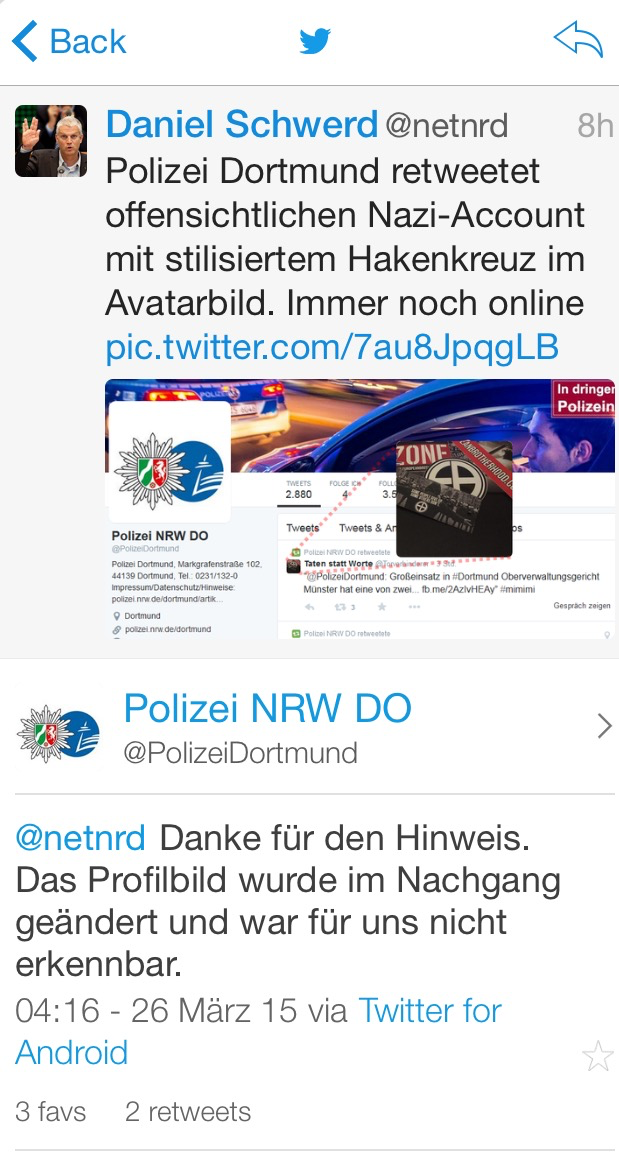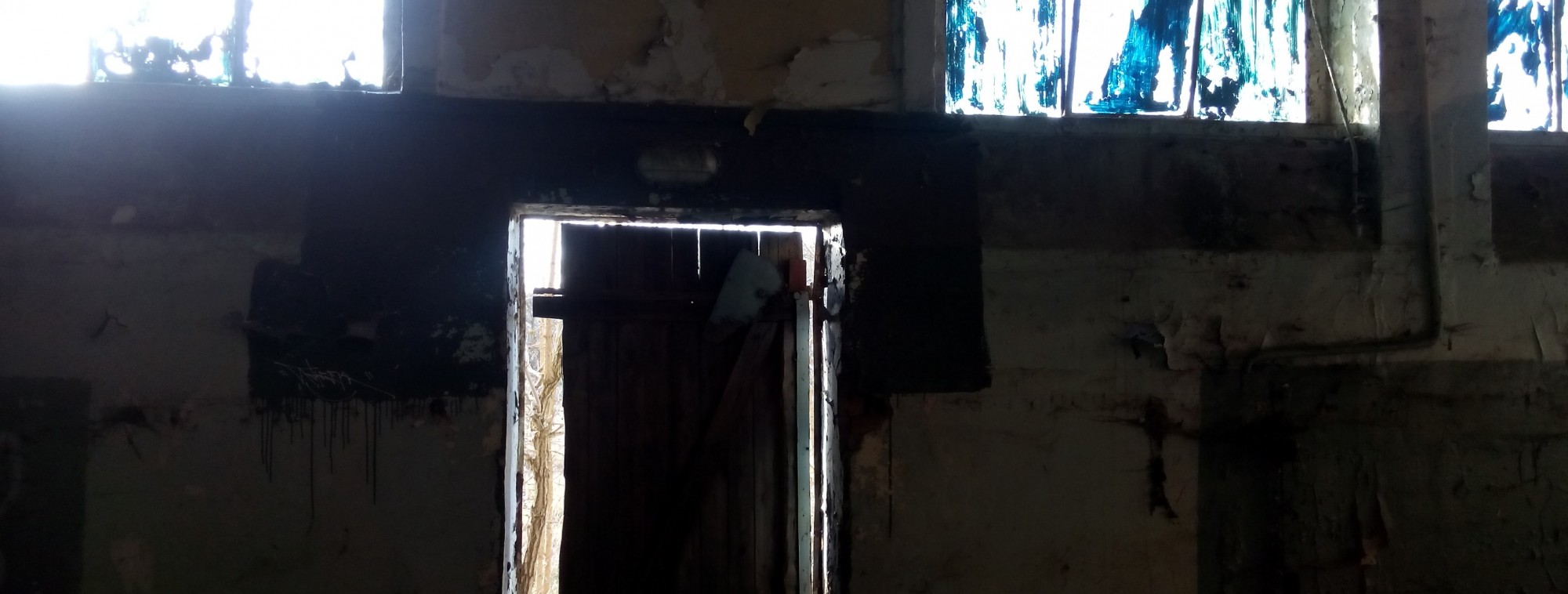I’ll try to give a first short summary of my trip to Northern Iraq and Rojava/Northern Syria.
I visited this area on the occasion of the International Women’s Day to learn more about the situation of women, especially kurdish women. Thanks to the women from Cenî and all the people who invited and accompanied us.
05.03. Flight to Sulaymaniyah together with a student/journalist from Berlin
06.03. Trip through Northern Iraq together with two kurdish women from Iran (I will decide later how many details I can give about these brave insprational women because their political activism is extremely dangerous for them. In Iran, the death penalty for offences is possible.)
In the evening (and after several passport controls all over the way through Northern Iraq) we arrived at the border to Syria. At Semalka the KDP affiliated forces told us that we were not allowed to cross the border at night. We met a group of women from Maxmur that night who also wanted to visit Rojava/canton Cizîre because of Women’s Day. Our driver hat to go back to Suleymaniyah and so we stayed in the little bus with the women from Maxmur for several hours. In the background the women from Sulaymaniyah and from Rojava try to speak to the authorities responsible for refusing the border crossing. http://www.jinha.com.tr/en/h/KDP_blocks_women%27s_delegation_from_going_to_Rojava
That night after several telephone calls we (16 women) slept in a very small room owened by a family in a town named Zakho. (I slept perhaps two hours.)
07.03. At the next day it took again several hours and interrogations till we finally were allowed to cross the border by ship. (They asked how we got together with the different groups of women (Germany, Iran, Maxmur travelling together)? What we want to do in Rojava? Why we are going there? What our jobs are? Over and over again…I probably will give more details later.) (The pontoon bridge is only open for some trucks which bring goods for humanitarian aid.)
While waiting at the border we took a look at some tents for refugees.
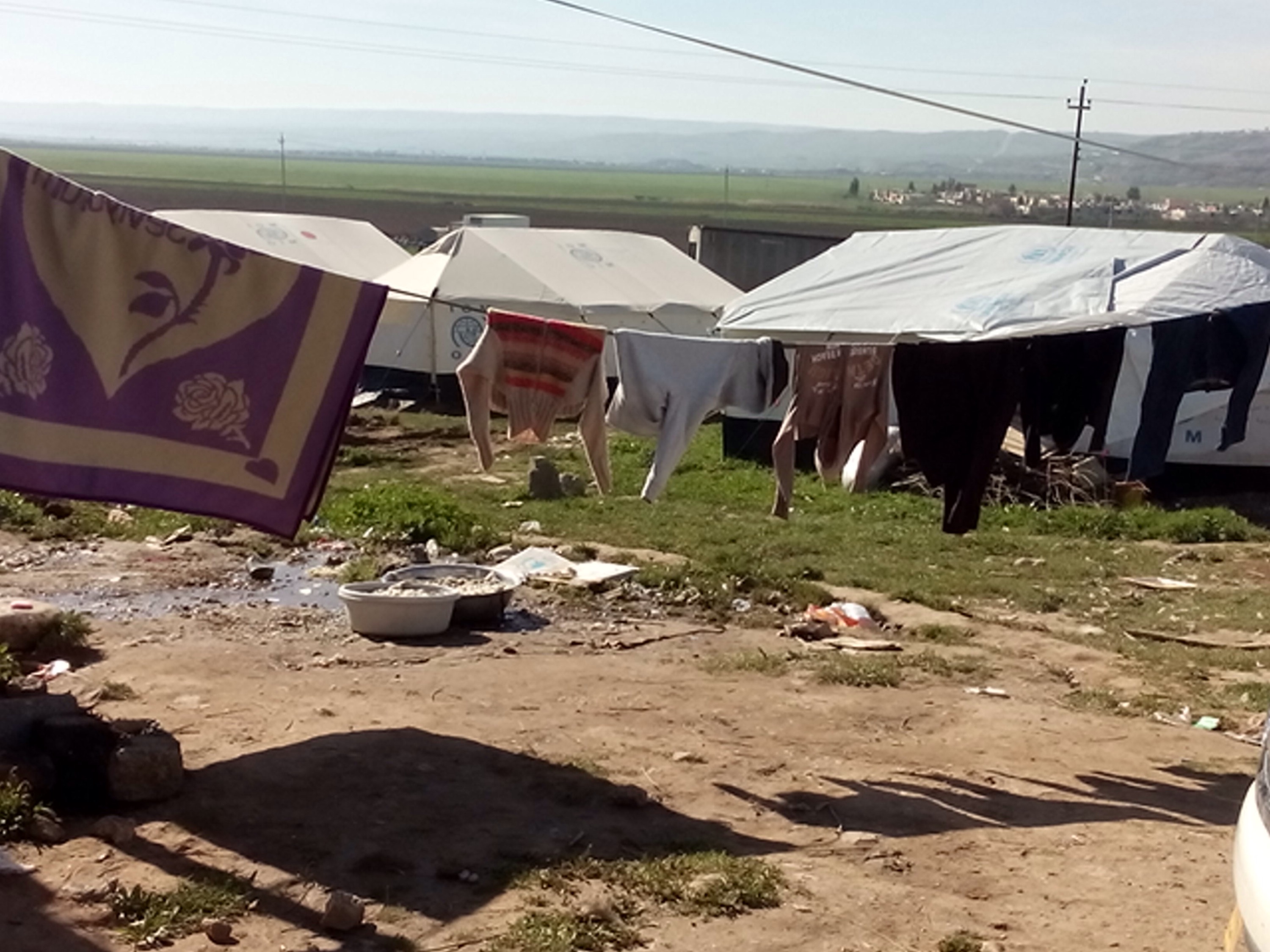
After we finally crossed the border we travelled to Qamişlo, where we stayed the night.
08.03. In Qamişlo we met a man, who would become our interpreter for the next days. (He is the person, who has been in prison for some days together with Joakim Medin, the swedish journalist, in February.) First we went to the funeral of some YPG/YPJ fighters who had died fighting against Daesh.
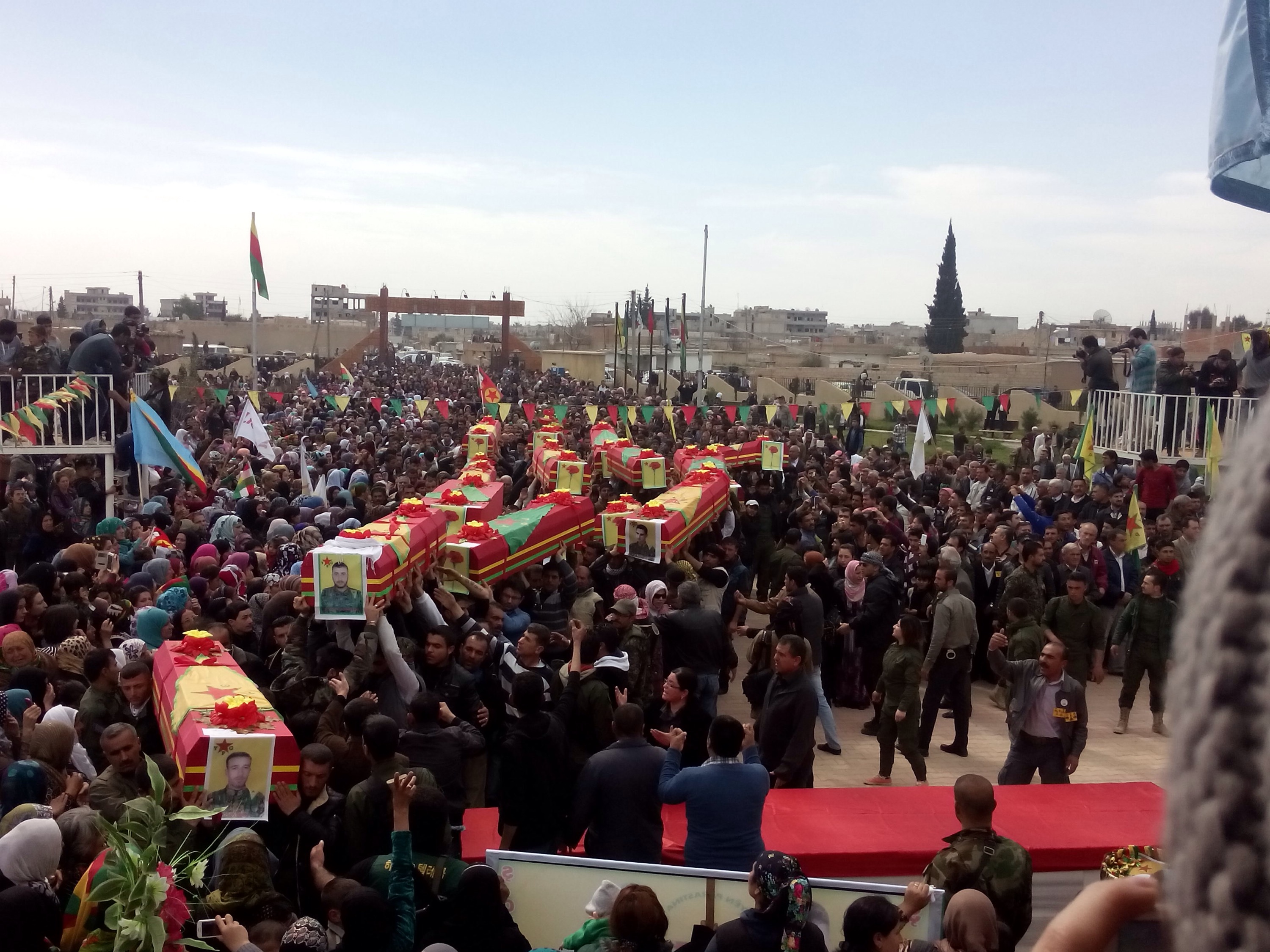
Next we visited an office of Yekîtia Star (a womens organisation in Rojava).
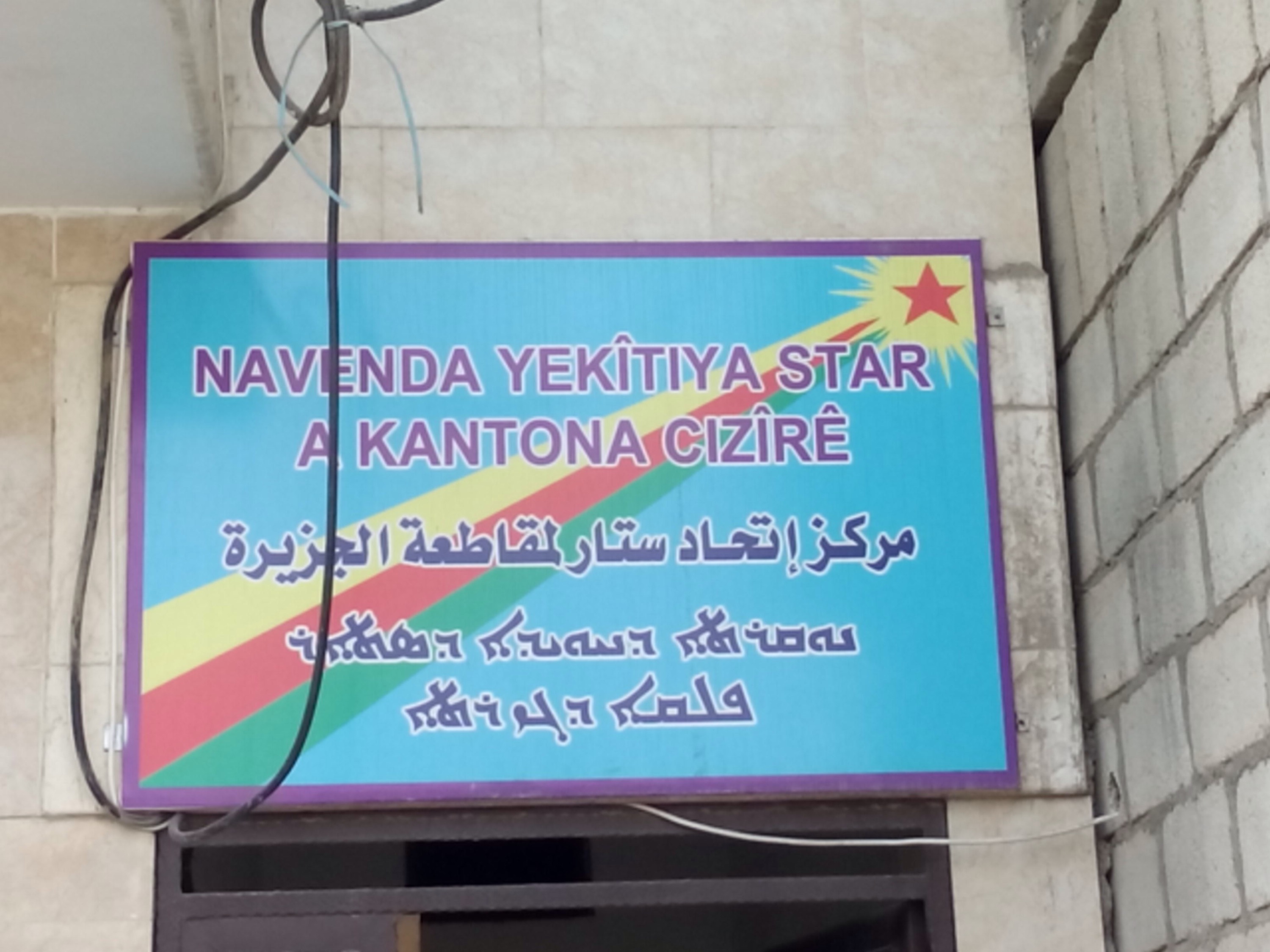
After an interesting conversation about several topics, about their struggle to organize women and their achievements so far, we traveled to Amude to celebrate Womens Day.
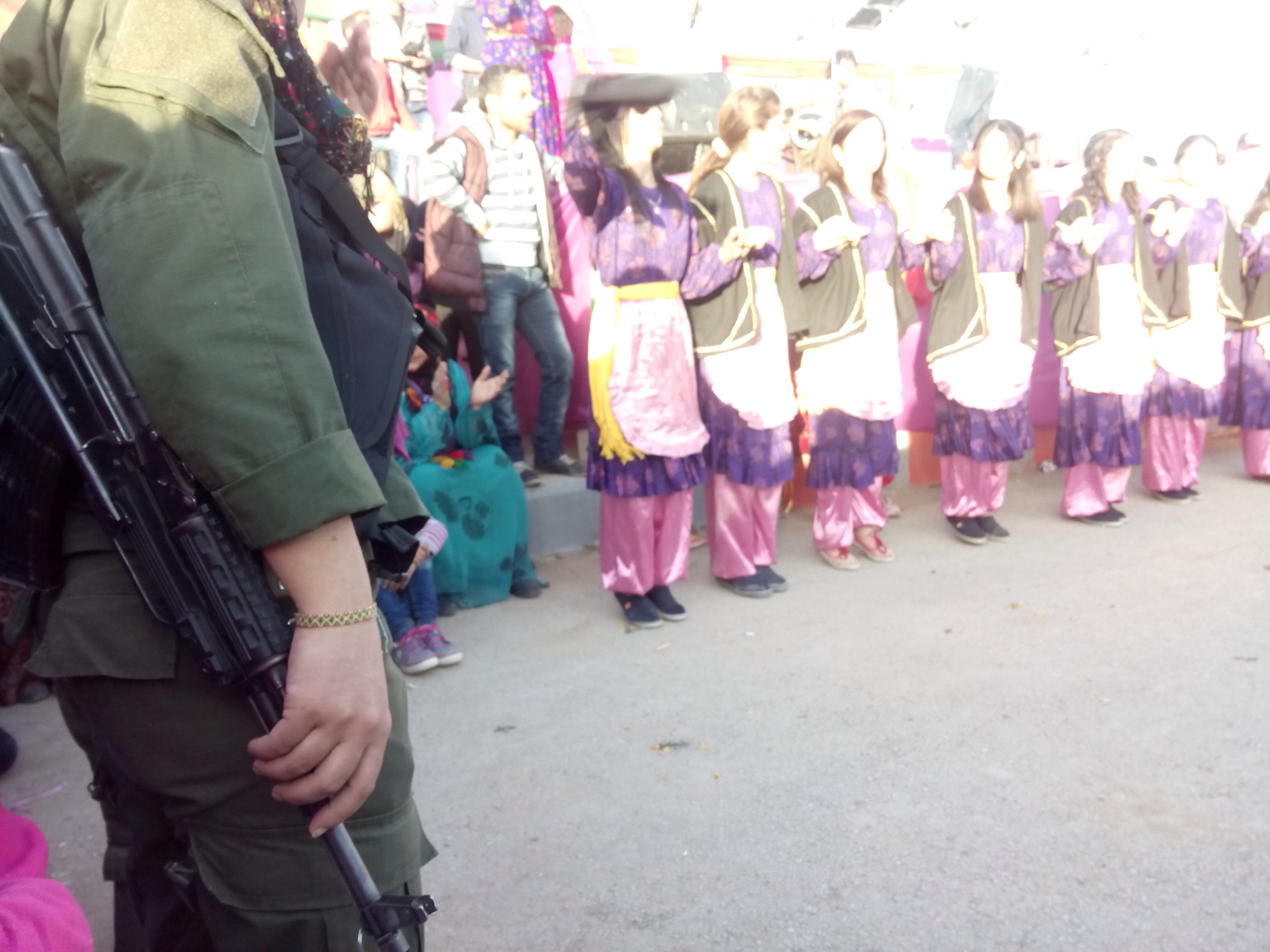
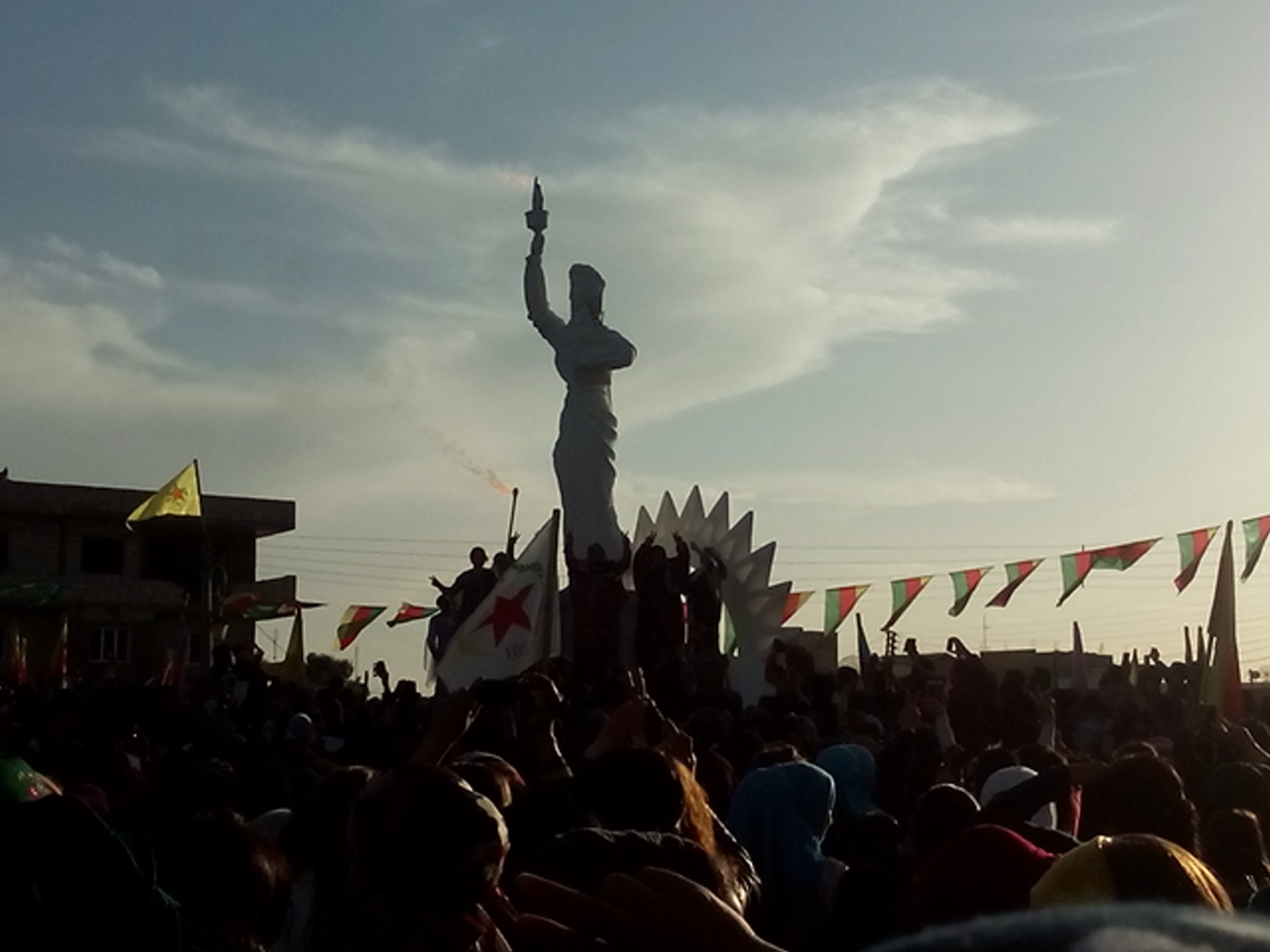
On the way we took a short look at some ancient ruins near an academy (philosophy) for YPG/YPJ.
(Perhaps I will write more about Yekîtia Star Organisation and the feminist struggle in Rojava in a separate essay.)
After some days it gets familiar to me that our driver has weapons in the car.
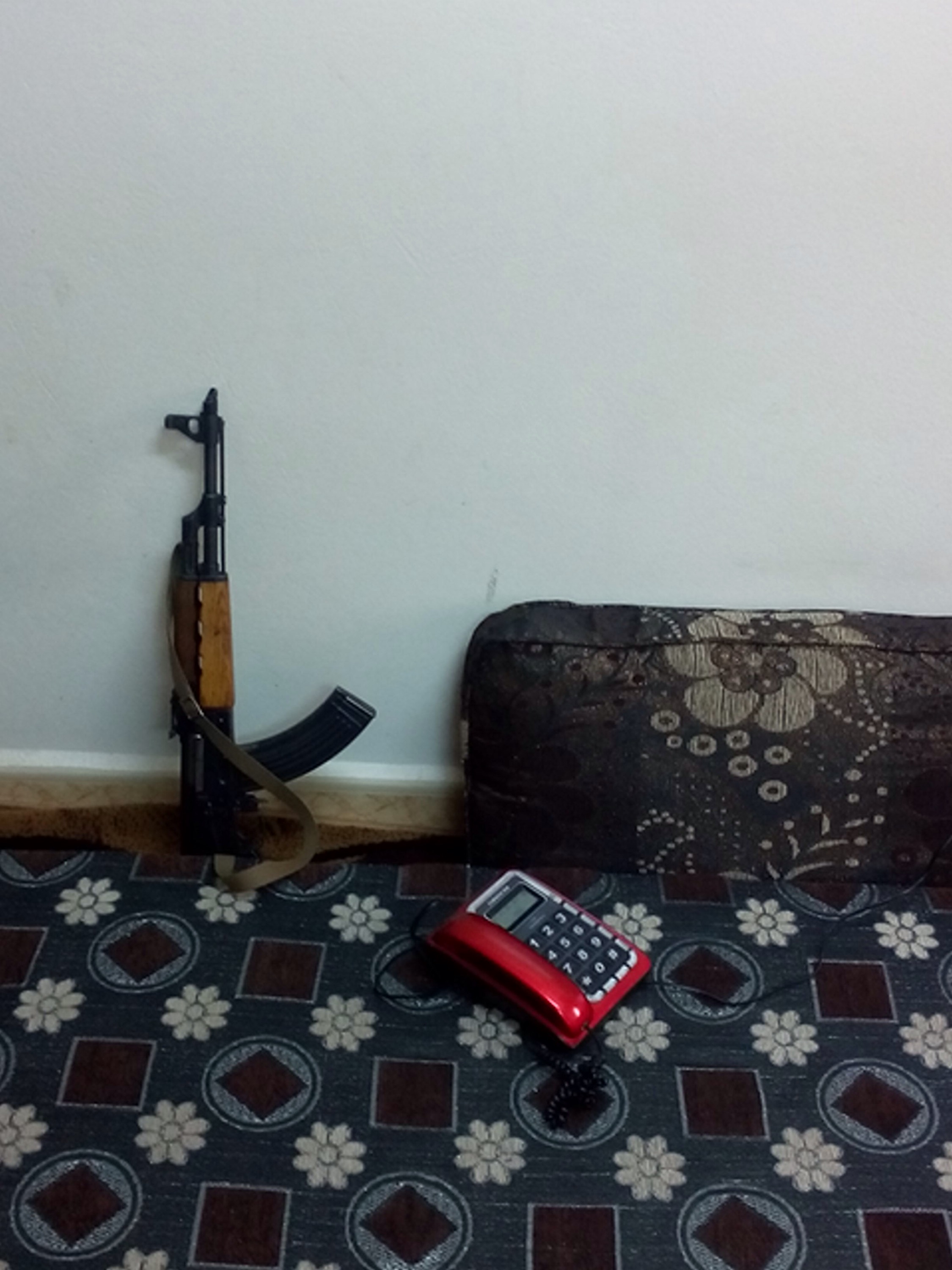
There are always people with weapons near us in Syria. Therefore I felt safe all the time. Interesting feeling. I never felt safe near people with weapons around me before. Here this became different. In this region there is the urgent need to be able to defend yourself or others. We also met several women and men with a past as guerilla fighters. We talked about killing people and what war does to people (especially women).
We stayed the night at some government building and filled the evening with conversations about their understanding and organisation of democracy so far. (I also will try to explain details later in a separate text.)
(To explain: Government in this case means government of Rojava. Nobody we meet there trusts the Syrian Government.)
09.03. We visited Newroz Refugee Camp.
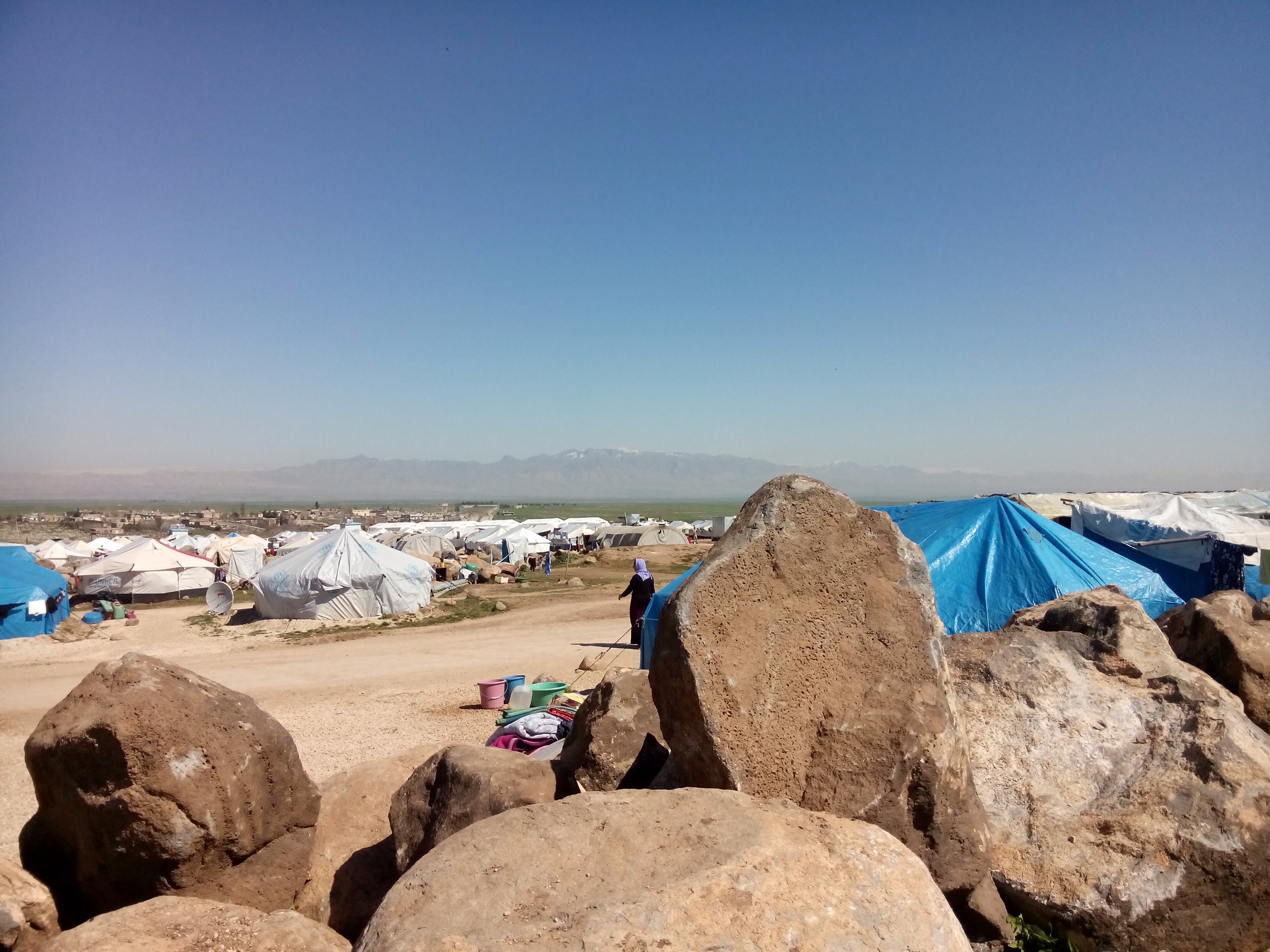
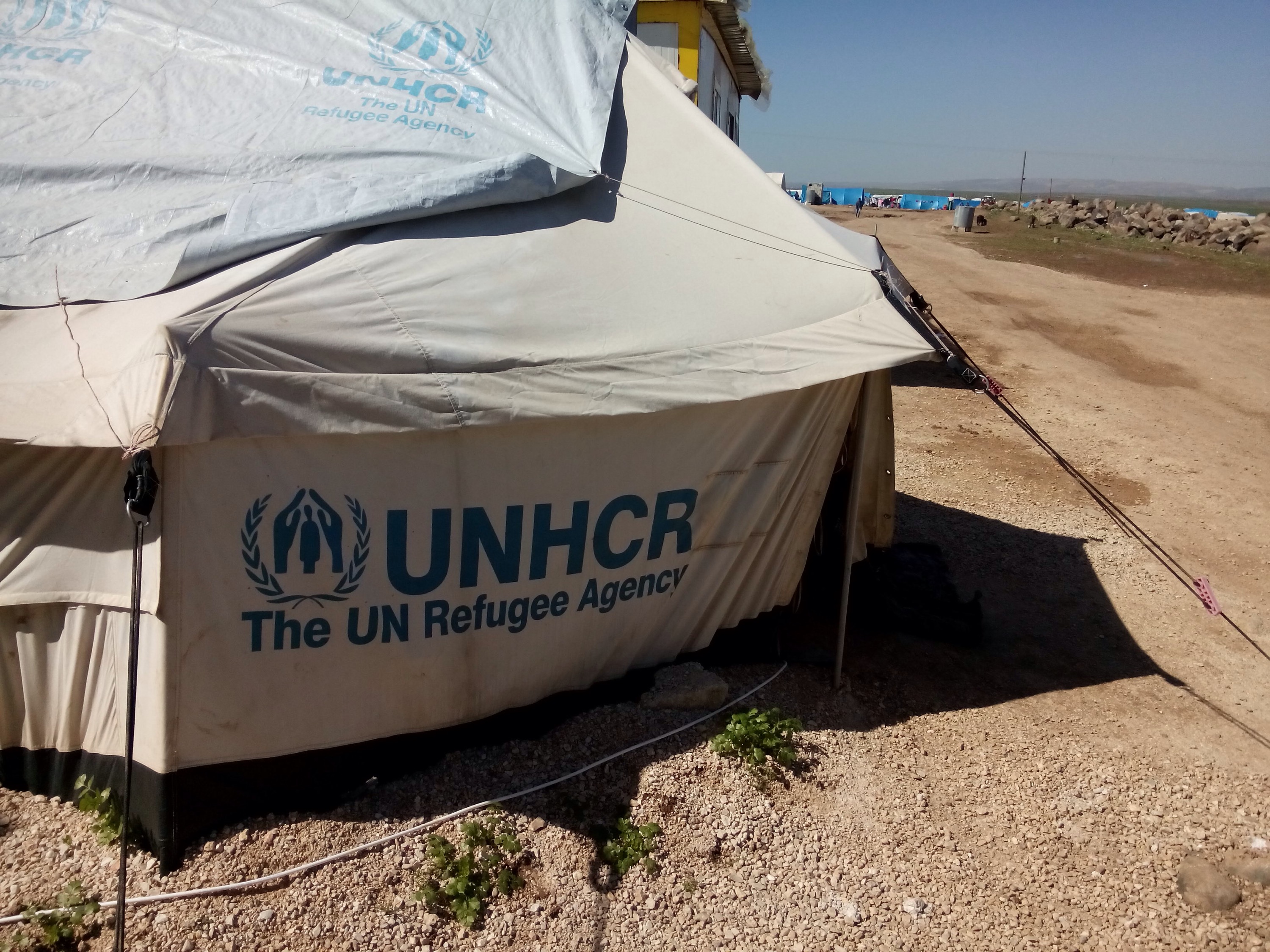
After that we talked to a woman from the Rojova government, visited a cooperative and a womens academy (Rimelan).
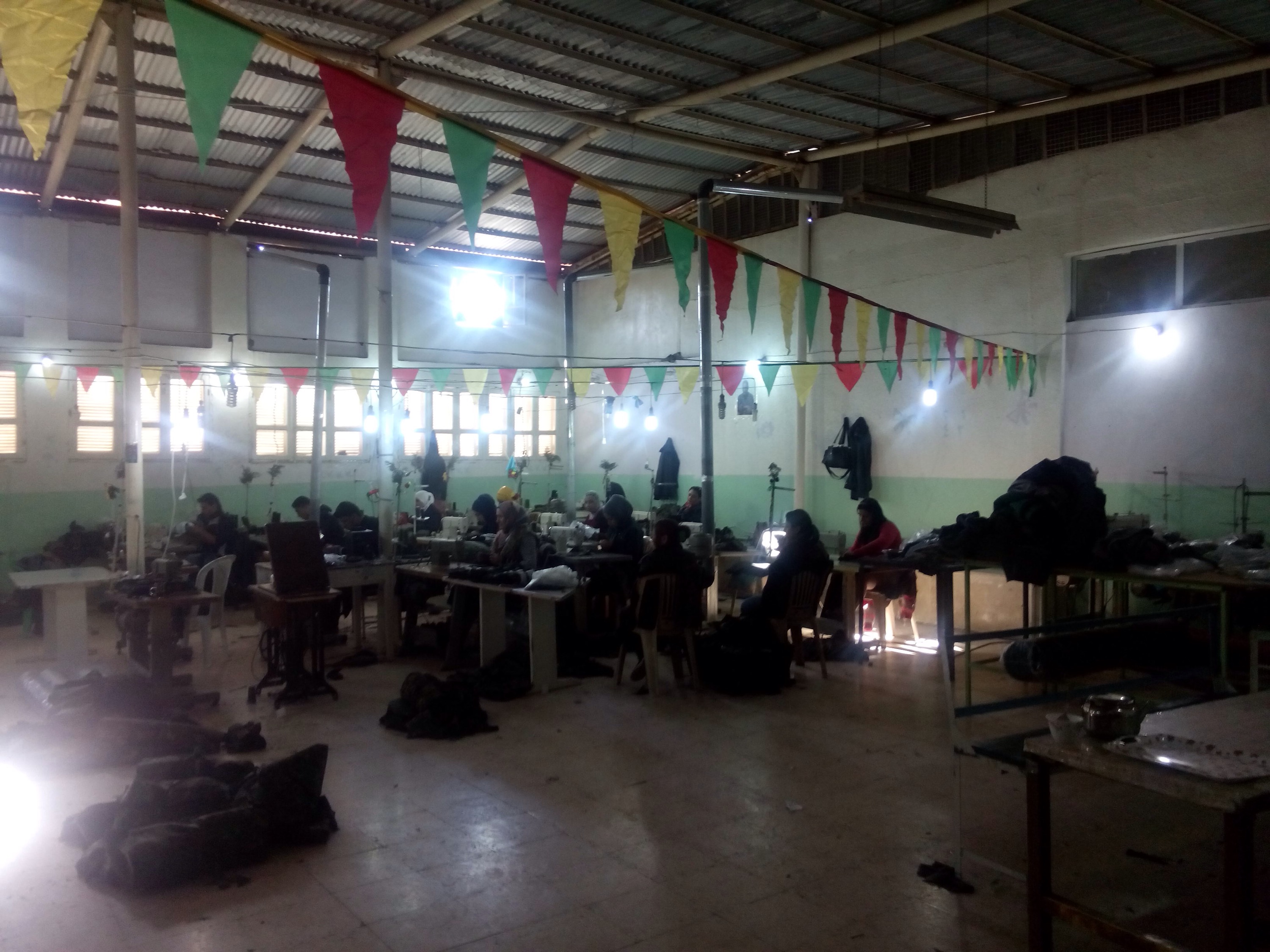
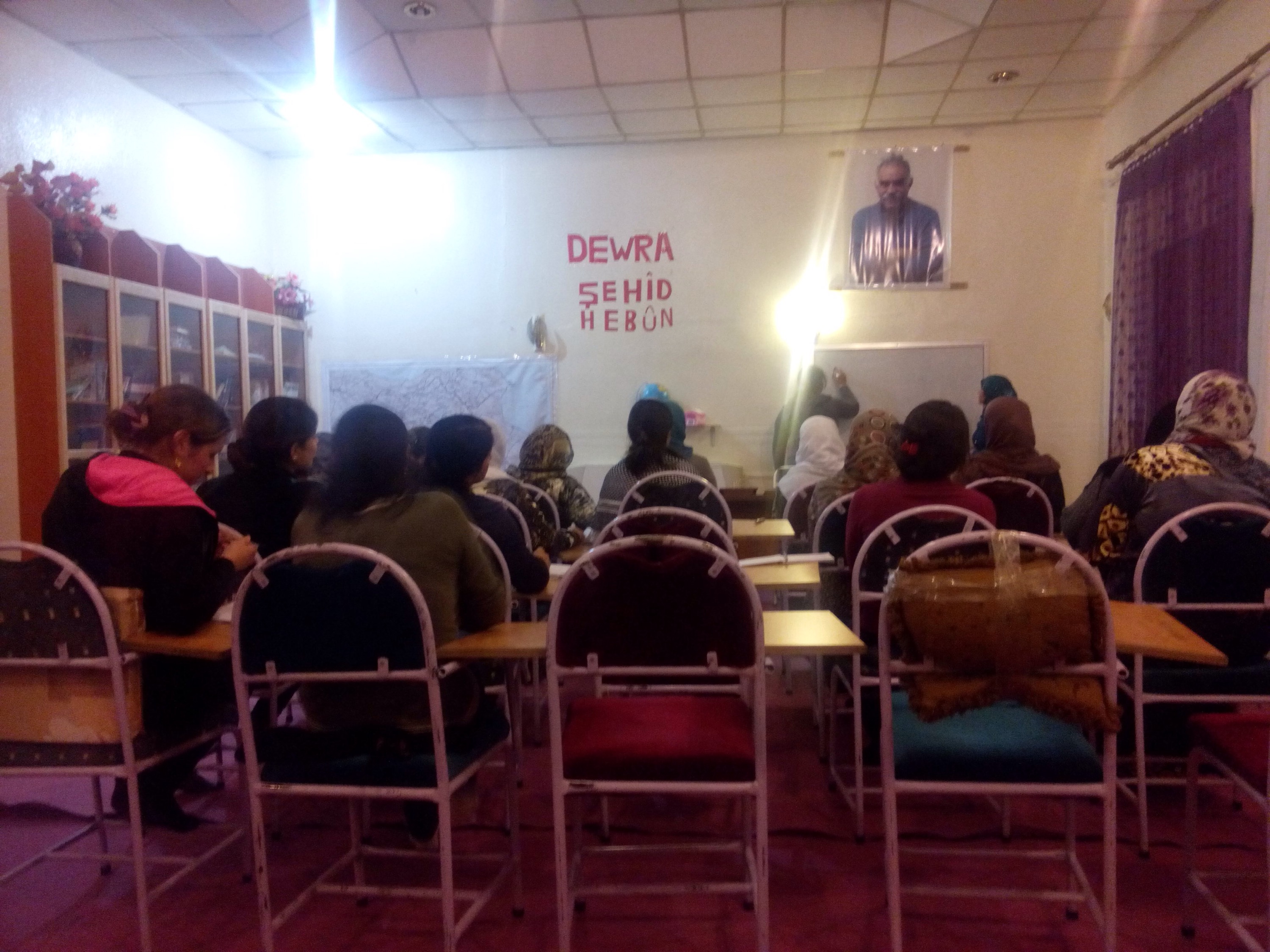
10.03. Travel back to Sulaymaniyah (with also another short interrogation at the border). We passed the long time in the car discussing several topics with our friends from Iran, such as socialism, capitalism and feminism. They explained more about the situation of women in Iran, about circumcision, marriage under age, about suicide, women burning themselves (fire is holy), but also about the dangerous situation of homosexual and transsexual/transgender people in the Middle East.
11.03. I had to leave. Alone at the airport a bearded man whose flight is delayed like mine addressed me because I obviously looked european. He told me about his life as a homosexual muslim and that only parts of his family know about this. If I understand correctly his boyfriend is from the USA and he has lived together with him for a while. He is afraid of IS so much (people there name them Daesh, nobody uses IS) and so he sent his partner back. European friends invited him to Europe, but he loves his country and likes to stay there. He studies economics and speaks five languages. On the airport he also told me, he misses his friend so much and that he is on the way to see him again.
In the families we stayed with we always felt such a warm welcome.
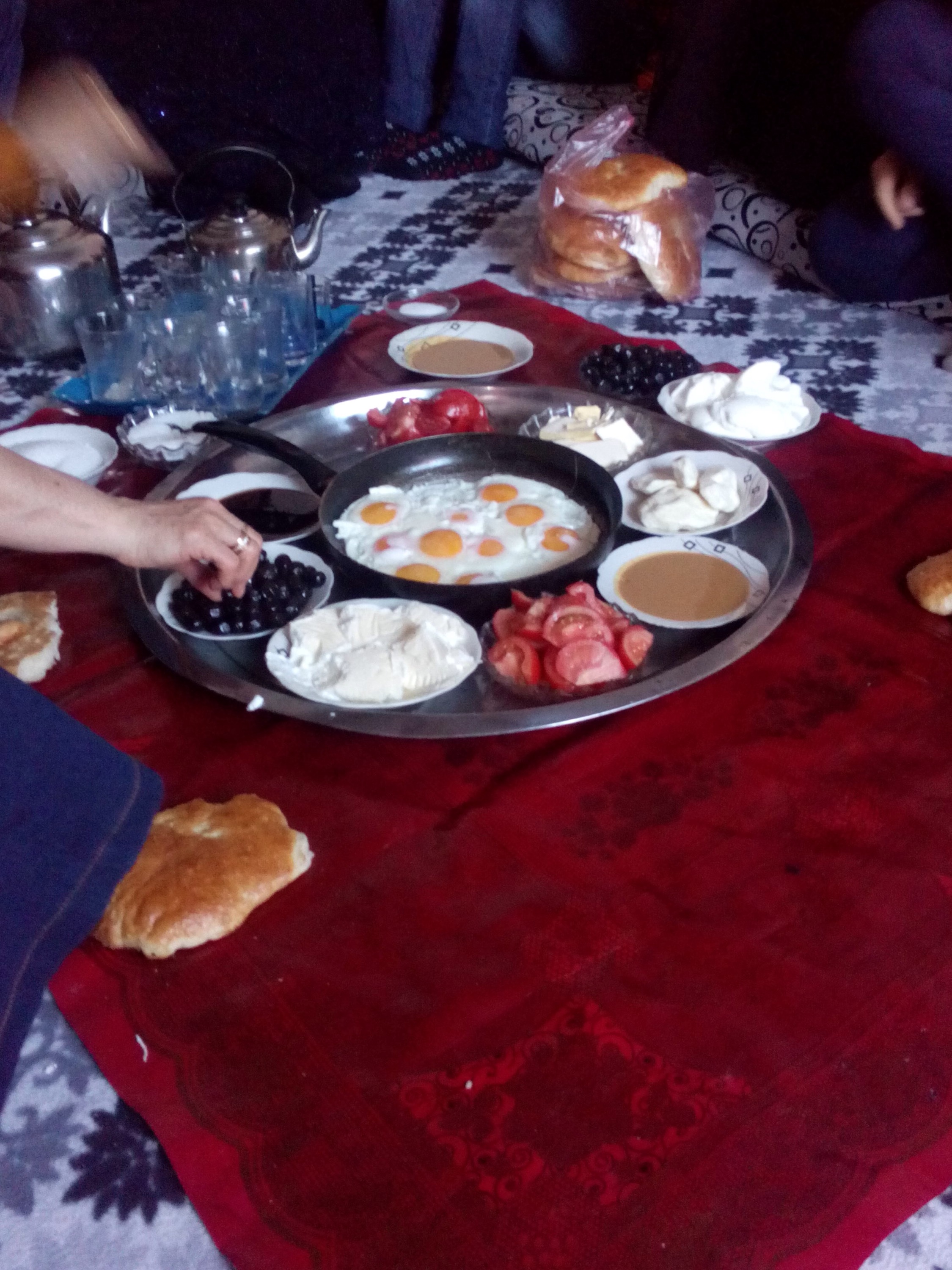
But also I made this experience with this complete stranger at the airport of Suleymaniyah. I miss this kindness and openness and hospitality in Germany. (Back at Munich Airport I am kind of shocked about the people being so busy and cold-hearted.)
Please feel invited to ask any kinds of questions. I would also appreciate your message if you’d like to learn some more details about parts of my journey.
